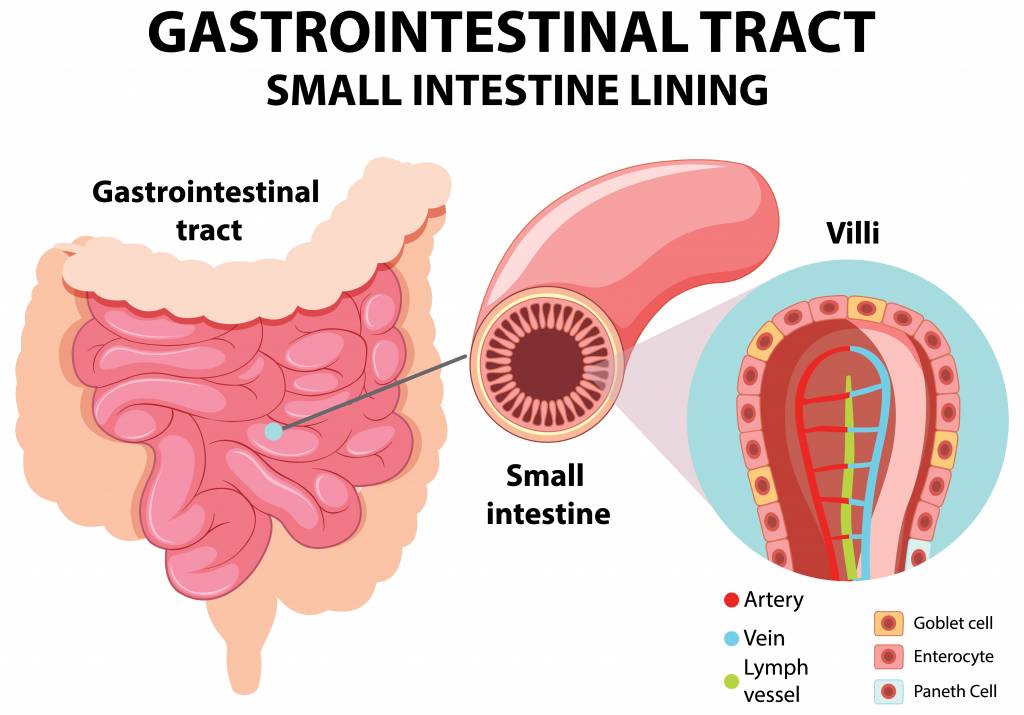Leaky Gut Syndrome is a term used to describe a condition where the lining of the intestines becomes permeable, allowing unwanted substances to leak into the bloodstream. This can lead to a variety of health problems and discomfort. While not yet recognised as a medically diagnosed condition, many healthcare professionals believe it to be a real issue that can significantly impact overall well-being. In this blog, we will explore what Leaky Gut Syndrome is and discuss seven common signs that may indicate its presence.
What is Leaky Gut Syndrome?
Leaky Gut Syndrome, also known as intestinal permeability, refers to a condition where the lining of the intestines becomes excessively permeable. Normally, the intestinal lining acts as a barrier, allowing only nutrients and beneficial substances to pass through while preventing harmful substances from entering the bloodstream. However, when the lining becomes compromised, larger particles such as toxins, undigested food, and bacteria can escape into the bloodstream. This triggers an immune response, leading to inflammation and potential health issues.

Identifying Leaky Gut Syndrome: 7 Common Signs to Watch For
- Digestive Issues: Frequent bloating, gas, diarrhea, or constipation may indicate Leaky Gut Syndrome. These symptoms are often caused by the impaired absorption of nutrients and the presence of harmful substances in the bloodstream.
- Food Sensitivities: People with Leaky Gut Syndrome may develop sensitivities or intolerances to certain foods. This occurs due to an immune response triggered by leaked substances, leading to symptoms like headaches, joint pain, or skin rashes.
- Fatigue and Low Energy: Constant fatigue and a lack of energy can be a result of Leaky Gut Syndrome. When toxins and undigested food particles enter the bloodstream, the body’s immune system is activated, consuming energy and leaving you feeling tired.
- Skin Issues: Leaky Gut Syndrome can manifest externally through skin problems like acne, eczema, or rosacea. The immune system’s response to the leaked substances can cause inflammation and various skin conditions.
- Autoimmune Disorders: There is evidence suggesting a connection between Leaky Gut Syndrome and autoimmune disorders like rheumatoid arthritis, lupus, or Hashimoto’s thyroiditis. The immune response triggered by the leaked substances may contribute to the development or worsening of these conditions.
- Mood Disorders: Mental health issues such as anxiety, depression, or brain fog can be linked to Leaky Gut Syndrome. The gut and brain are closely connected, and inflammation caused by the leaked substances can affect brain function and mood regulation.
- Chronic Infections: Frequent or recurring infections, particularly in the respiratory or urinary tracts, may indicate Leaky Gut Syndrome. The compromised intestinal lining weakens the immune system, making it harder for the body to fight off infections.
Understanding the Link Between Leaky Gut Syndrome and Your Health
Leaky Gut Syndrome can have far-reaching effects on your health. When harmful substances enter the bloodstream, they can cause chronic inflammation, leading to a variety of conditions. These may include autoimmune disorders, allergies, asthma, irritable bowel syndrome, chronic fatigue syndrome, and even skin issues. Moreover, the immune system’s constant activation can result in a weakened immune response, making individuals more susceptible to infections.
While the exact causes of Leaky Gut Syndrome are still not fully understood, several factors are believed to contribute to its development. These include a poor diet high in processed foods, stress, excessive alcohol consumption, certain medications like nonsteroidal anti-inflammatory drugs (NSAIDs), and even gut imbalances caused by an overgrowth of harmful bacteria.
Seeking Relief: Treatment Options for Leaky Gut Syndrome
While there is no specific cure, treatment usually focuses on addressing the underlying causes and promoting gut health. Changes in diet, such as reducing processed foods and incorporating more whole, nutrient-rich foods, can help heal and seal the gut lining. Probiotics and supplements like glutamine and zinc may also aid in restoring gut health.
Managing stress levels, practicing relaxation techniques, and getting regular exercise can contribute to overall gut health as well. Additionally, avoiding known triggers, such as certain medications or foods that worsen symptoms, is vital. It is important to consult with a healthcare professional who can provide personalised guidance and recommend specific treatments or interventions based on your individual needs.
Conclusion
While Leaky Gut Syndrome is not yet widely recognised in the medical community, many people experience symptoms that align with this condition. Paying attention to common signs such as digestive issues, food sensitivities, fatigue, skin problems, mood disorders, autoimmune disorders, and chronic infections can help identify potential problems and prompt further investigation. Remember, seeking professional guidance and adopting a holistic approach to gut health can aid in finding relief and improving overall well-being.

